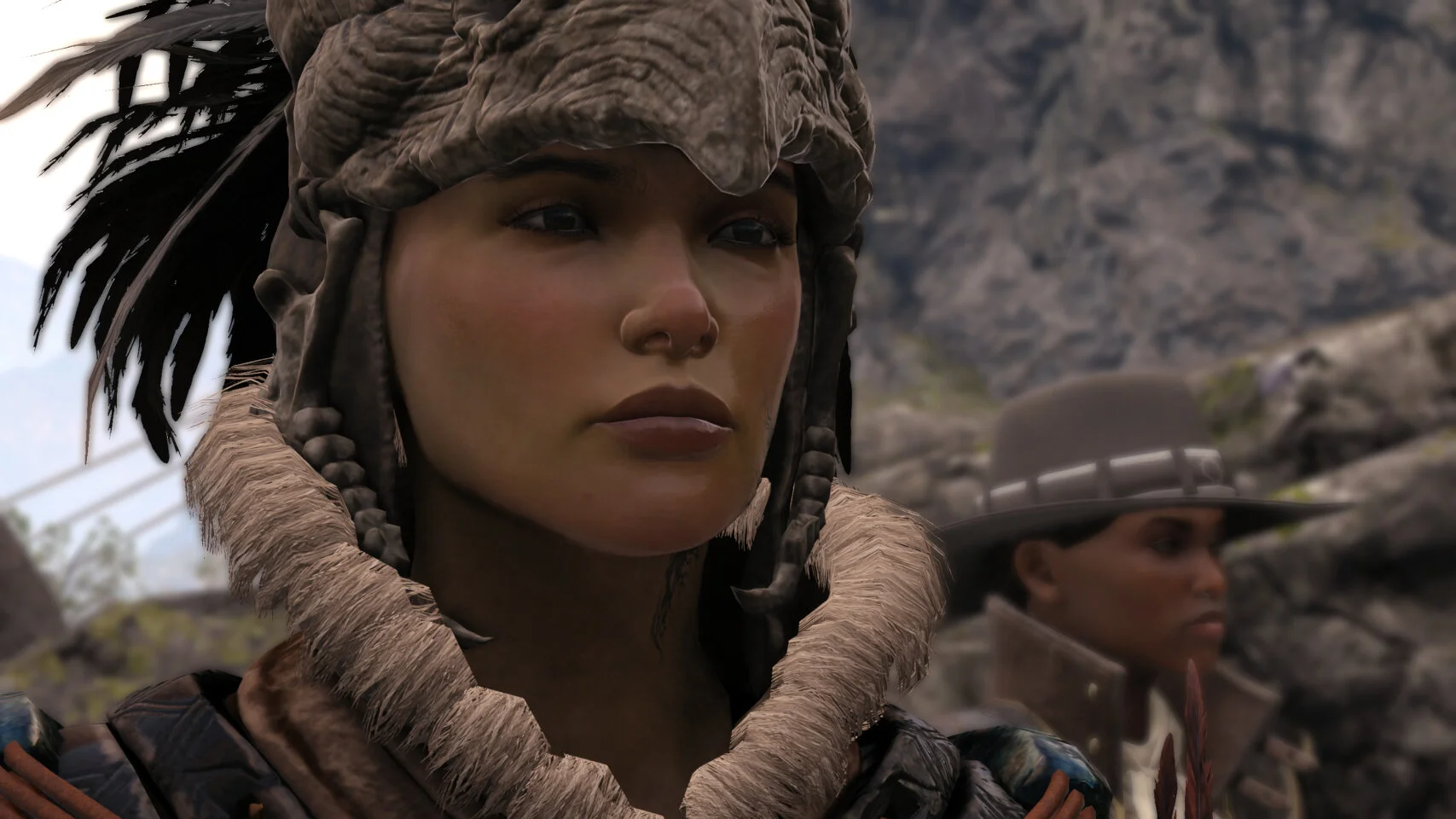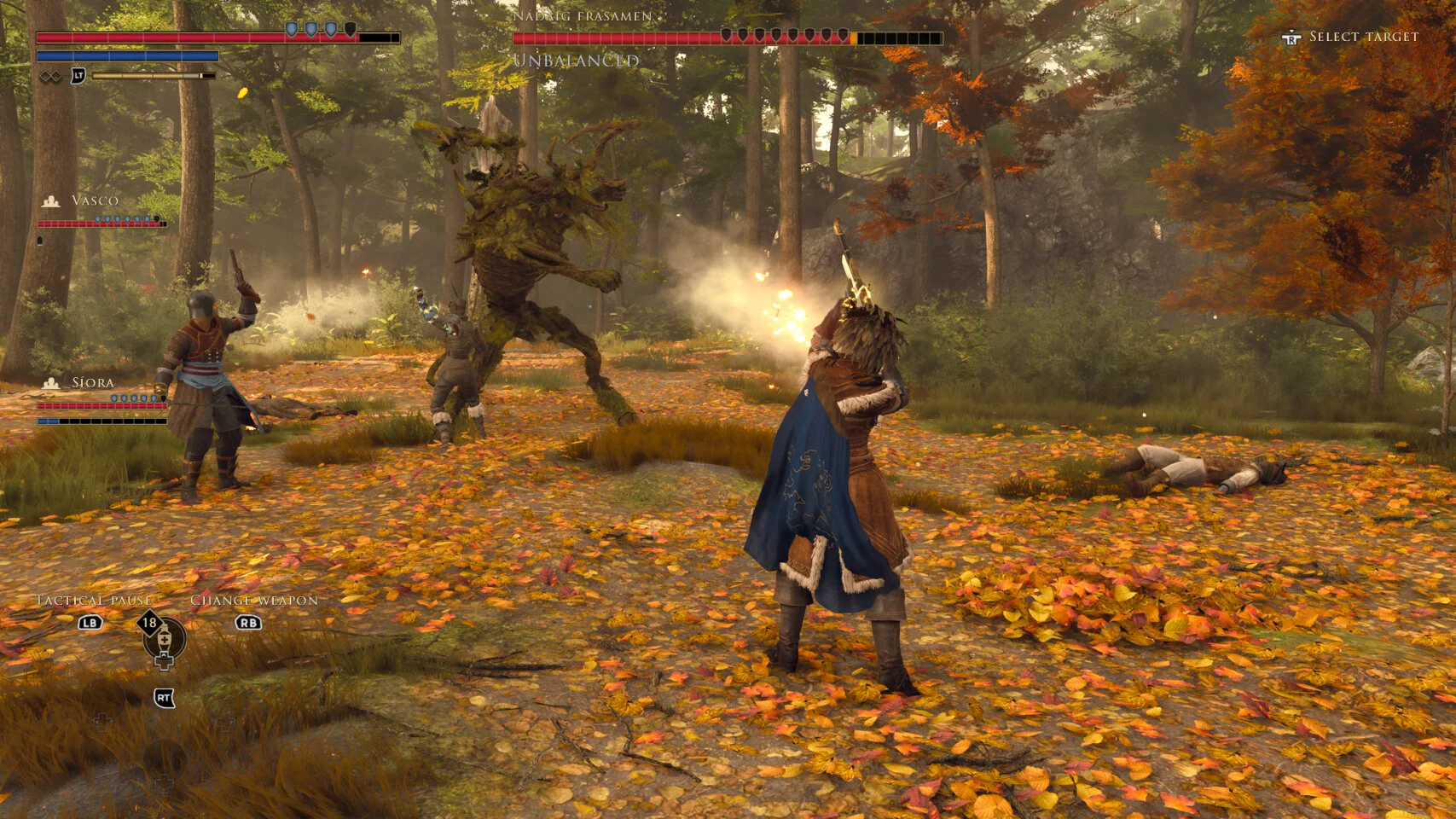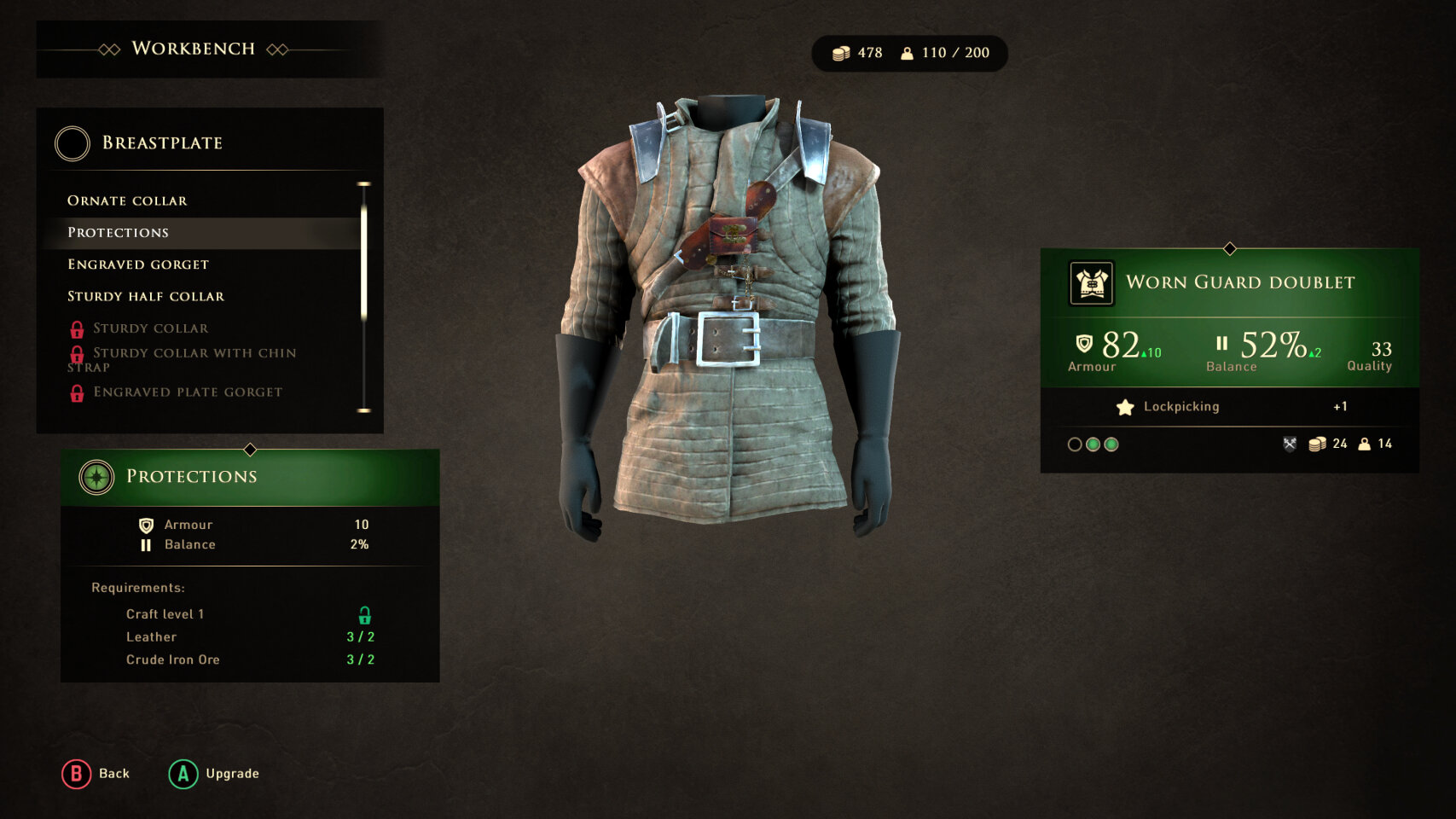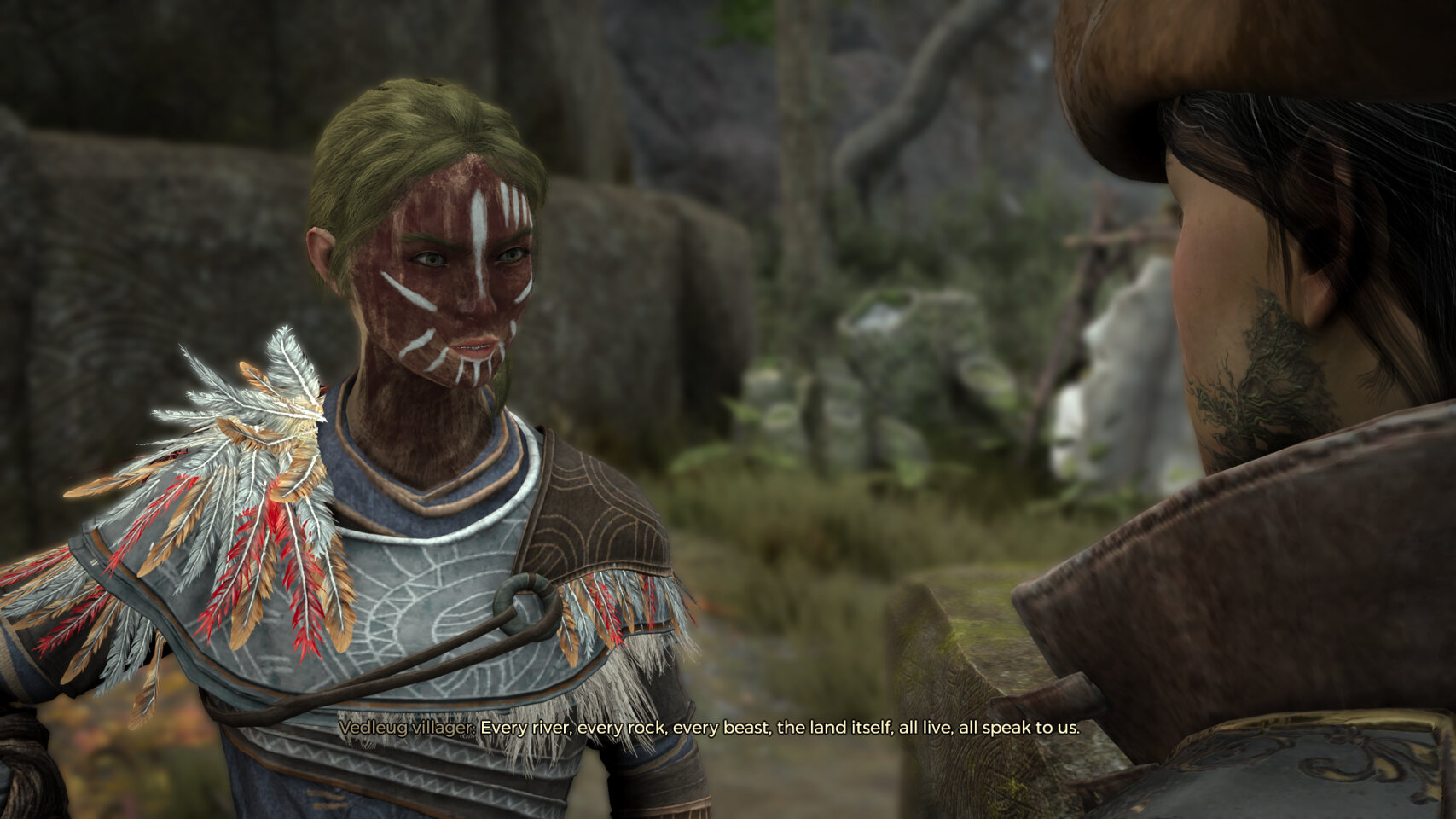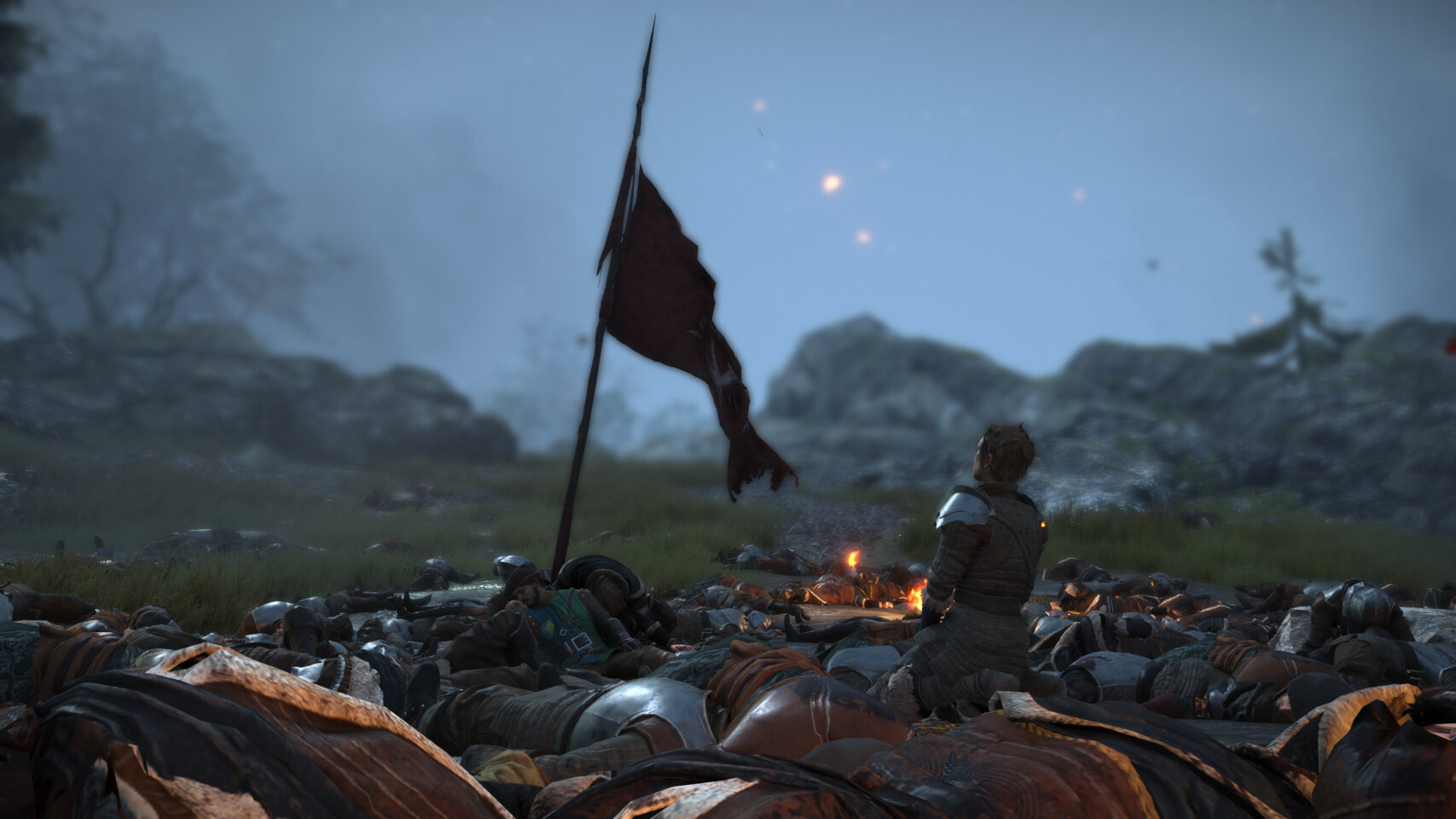The root of all evils.
French developer, Spiders, is a studio I’ve kept my eyes on ever since 2014’s Bound by Flame. I adored the game as I also did with their 2016 follow-up, The Technomancer. Flying under the banner of being one of those “Euro Jank” studios, their releases have always shown passion and creativity over their more technical and visual elements. After the release of The Technomancer, I wanted to see what the studio could do with a much larger budget, and after 3 years of waiting, I have my answer in the wildly enjoyable, yet consistently flawed, Greedfall.
It’s hard to say how the game will be looked at given the abundance of the somewhat last-gen visuals the game is littered with. While the environments and creatures are incredibly well done, I can easily see the game being picked apart from a more graphics orientated crowd when it comes to its more human cast shown in much of its advertisements and screenshots. Coming at a title created by a few dozen people, there needs to be a level of expectation to what the game can and should offer. Had Greedfall been developed by a studio of two or three hundred, or the almost thousand that Ubisoft will throw at an Assassin’s Creed release, then I would certainly have more to say on the game’s faults. Given that Spiders is made up of a team of just over 20 people, what they have accomplished here in its depth and scale is incredible. That said, I do have several issues with the game that do sour the experience in small and yet significant ways.
Greedfall is a very slow burn, peppered with strong moments of action, but those looking for that excitement to remain consistent throughout its roughly 40-50 hours will be disappointed. Much like Bioware’s Dragon Age: Origins, a game it feels largely inspired by, Greedfall relies on its extensive writing and dialogue to build its world, deepen its characters, and invite you to take in as much of that as you want. Through its dialogue and faction systems, you will make choices that have dire consequences that will shape its world, its characters, and its story. As a diplomat sent to explore and investigate the new world, you’ll often be at ground zero of everything that takes place. While the narrative Greedfall places in front of you is largely impressive, it does overstay its welcome with a very drawn out final act that kept feeling like it was ending only to open up a wealth of additional quests. While that normally wouldn’t be a bad thing, the pacing often presented in the game can make some hours feel like days. While I love the way the game and its narrative wrapped up, the path there was not always as impressive.
Much of the story here is based around new world colonialism, with religious radicals moving in on native territory with their '“convert or die” way of life. These themes are everywhere with the natives often being accused of barbaric practices despite the colonizers being just as guilty of even worse atrocities. You will talk with the leaders of every faction and investigate not just what they need of you, but their concerns when it comes to the other factions, such as when the natives are blamed for every death of the other factions. While it is possible to play nice with each of them, there are some choices you’ll make that will often put you at odds with them and in some cases, turn them hostile towards you. Greedfall also bestows companions upon you that consist of a member of each of these factions, often making exclusive conversations play out if they choose to get involved, and they often will. In fact, some factions may stonewall you completely unless you have someone that can talk sense into them. As you level up and place points into traits like Charisma and Intuition, you can influence many of these conversations yourself, but you’ll still come to rely on many of your companions to smooth out relations with each faction and they may leave your side should you choose something that they vastly don’t agree with.
The extensive dialogue systems and choice-based structure of how big and ambitious this title is can be fraught with problems mainly due to the developer’s lack of experience here. This is most prevalent when doing some quests out of their canonical order. Much of my interactions with the Cardinal of San-Matheus has me revealing dark truths about a character named Domitius, one who is standing right next to the Cardinal. During several quests, I would reveal his involvement in nefarious dealings, with him commenting alongside my dialogue, but after almost closing the book on my tasks within the city, I tackled the quest “An Ancient Secret” and the dialogue is based around us meeting him for the first time, despite us interacting with him quite often previously. There are also several times where De Sardet, your character, will be told of a person they’ve never met, and be given only the context of something like “We have a healer in town.” and they’ll already know the gender of that character by replying with “Oh, and where I can find HER.” despite again having not met them before. Combine that with my female De Sardet always being called a man at every turn, and numerous other examples of awkward “first” meetings, and it shows that the game’s complexity can sometimes exist beyond the developer’s ambitious reach.
Amongst the new world narrative, as De Sardet, you are tasked with finding a cure to a devastating disease called the Malichor. Indicated by black lines and markings on the body, it comes with terrible nausea, fatigue, and often blindness to the diseased. As the illness is running rampant through the old world, you’ll reach out to the natives and the new world’s colonizers to find a cure. This story leads you deep into the history of the island, into the customs that the natives have performed well before the other factions showed up, taking over much of their land, often by force. To dive into the rabbit hole of the island even further, you’ll explore several sacred locations, gain the trust of the natives to learn their secrets, and learn much about yourself in the process. De Sardet herself has a mystery as well, one that is briefly hinted at during the early game and can possibly swing you to act in certain ways depending on what you want from their story.
Given the length of the game, combat and exploration needed to be a solid experience in order to keep your interest through the entire adventure. While I did tire of some of the fetch quest style objectives during the last 5 to 8-ish hours of the game, mainly due to the pacing and ridiculous back and forth aspects to some quests, the combat and exploration never became tiresome once. If you’re familiar with how Dragon Age: Inquisition or Monster Hunter: World handled its ‘open-world’ by creating expansive zones that would connect through paths or fast travel spots, then you’ll know what to expect here. While Greedfall has lush open locations that do impress, its lack of a mini-map is the only drawback to traversing them. While there is a compass, ala Skyrim, it simply doesn’t contribute to making exploration fun and you’ll consistently bring up the large map more often than you should have too.
Each location will also have fast travel camps that you can set up that allow you to you assign members to your team, rest, or use the crafting bench to upgrade your armor and weapons with a vast array of unique options that come with their own perks and bonuses. This system allows even the most basic armor sets and weapons to flourish with additional designs and styles. As you upgrade your crafting through the skill system, you’ll be able to dive deeper into this and create stronger additions to get the most of it. Also, as you load into new zones, the game will set you down in a similar camp, complete with a store, to allow you to tinker with your setup during the game’s loading screens. That said, the loading in this game regardless of entering a new zone is incredibly fast and fast traveling within the same map is “blink and you’ll miss it” fast. That said, I wish you could bypass the loading camp should you just want to load into the next zone instead.
Inspired by the likes of The Witcher, Greedfall’s combat allows for fast attacks, parries, and rolls, making for a very fluid and dynamic combat system. While it can feel similar to what they accomplished with The Technomancer, it really feels drastically improved here. Your character has somewhat of a homing attack when striking and many strikes feel like they bridge the gap more often to allow combat to keep moving fast with keeping your enemy in reach. Also, should you not have the time to swap to a potion you haven’t equipped or one of the other aspects to combat, you can pause battles and take your time to analyze the encounter and choose actions before you commit to them.
While you can push through the skill tree to unlock additional weapon options like hammers or two-handed swords, you can keep your bladed weapons to the more one-handed approach and invest into traps or magic, giving you a wealth of options here. For my De Sardet, I opted to go for traps first, letting me drop poison or magic traps with a fast roll, making my intent quick and letting me dodge out of the way of incoming attacks. I eventually moved into magic, giving me a magical burst to stun my foes, before diving more into my gun, giving it a more powerful kick than its default setting. Weapons and magic feel fluid and fun, letting combat remain fresh and inventive.
Continuing its approach at being a deep and rewarding experience, there are 3 seperate skill trees to work through. As I’ve mentioned, you’ll have the ability to tailor your De Sardet towards the use of traps, magic, or combat, but there are two additional tabs that allow you to change how you’ll interact with not just combat, but assist in unlocking conversations and new paths. Attributes allow you to sink points into Mental Power and Will Power for assistance in magic, Endurance to boost your health as well as allowing you to wear heavier armor, Agility to increase your special attack, as well as letting you equip more weaponry, and finally Strength, which increases the power of your melee attack and also allowing the use of different types of melee and blunt weaponry.
Lastly, are talents, and knowing which to put points into early can drastically change how you push through this adventure. Charisma will not only adjust prices in shops and unlock special conversations, but also affect the morale of your companions and have them be more efficient in combat. Vigor helps in boosting your overall health and ammo supply, as well as allowing you to survive a fall, but also allows you to traverse secret areas that require balance or a steeper climb. Science allows you to create a vast array of throwable phials and potions, whereas Lockpicking does exactly what it entails as well as allowing you to pick up enemy traps. Craftsmanship allows you to dig deeper into the crafting tree and lastly, Intuition grants you further dialogue options, better crafting supply detection, and the ability to slip into cracks in the wall to access secret locations. Should you be down a point to sink into any of these talents, many items such as gloves or capes do come with talents built into them, allowing you have that third point into lockpicking should you only have two placed into it.
While the human characters in Greedfall can leave a lot to be desired, the remaining elements to the game are quite well done. The more monstrous creatures all look fantastic and remind me of the Leshen’s in The Witcher, but amped up to eleven. These Guardian battles are truly a spectacle and thankfully, there are a lot of them. Environments, both the wide outdoors and the densely packed towns all compliment each other well and offer a lot to do in them. I personally think Greedfall is a very good looking game despite the weaker character models used for its entire humanoid cast that make them feel somewhat last generation. That said, many locations in town are largely copied and pasted, especially the larger homes that house the elected officials in each town. Given the size of the team, I don’t blame them, but it does weaken the other impressive aspects to the game when you’ve seen the same house for the seventh time.
Given that every line of dialogue is voiced in the game, there are certainly hits and misses when it comes to its voice cast. For the most part, several characters are handled extremely well, and while the native’s dialogue can come off a bit awkward when you can tell even the actors themselves are struggling on their words, it still does lend itself to being at least something fairly entertaining. From the drum beats during combat to the moments when the score takes hold, the sound design here is fairly great without really being that impressive.
Given that this is a Focus Home Interactive title, there are tons of technical issues throughout Greedfall. While I’ve only had a few crashes, I’ve had quest markers disappear, interactive elements in the world not function, companions caught on trees and other parts of the environment, and several nearby textures not load properly, or at all. One problem that really was frustrating was when I was one faction away from building a union between everyone when I needed to bring a character to justice instead of killing him. The first time I approached him, I had that option, but then the game glitched and I wasn’t able to turn in the quest. Reloading a save from over an hour ago, I approached the man again but was not given the chance to take him in alive, forcing me to kill him and end the alliance I had with that faction. Again, given it’s a small team, I wasn’t expecting the most polished experience in the world, but when some of these issues happen, it can truly affect your enjoyment and the progress you’ve made for hours.
Despite all the issues present in Greedfall, I still had a great time exploring its world and interacting with its wealth of characters. It felt like the choices I made mattered, and the conclusion to the story was wildly satisfying despite the journey not always being consistent. If you’re looking for a game that feels like the past Bioware games of old, then Greedfall is certainly going to entertain you and keep your interest. With a satisfying combat system and deep RPG customization, there is certainly a lot to love here if you can push past the technical and visual problems that can hold the game back from greatness.
Greedfall was purchased by the reviewer and played on an Xbox One X.
All screenshots were taken on an Xbox One X.



